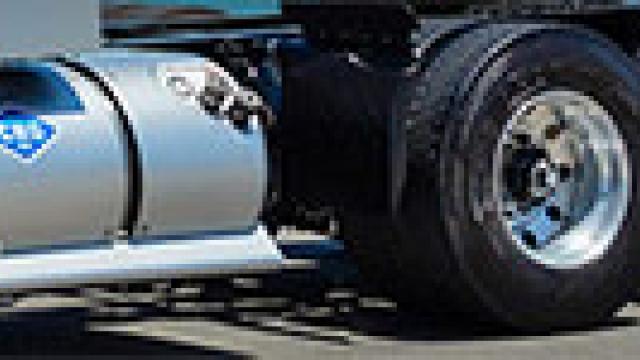According to the Clean Vehicle Education Foundation's report*, natural gas vehicles (NGVs) have a favorable safety record compared to almost any traditional or alternative fuel vehicle available today. More than 30 years of experience and millions of problem-free-driven miles support that natural gas is an extremely safe fuel for vehicles.
Safety Advantages
Natural gas vehicles offer significant safety advantages over many of their fuel competitors in the market:
- The physical properties of natural gas make compressed natural gas as safe as gasoline or diesel fuels.
- Natural gas isn't toxic to touch.
- Natural gas has a very narrow concentration range for combustion, which reduces the possibility of accidental combustion.
- Natural gas is lighter than air and will rise and dissipate into the air if released.
- The odorant added to natural gas makes it easier to detect its presence.
- CNG doesn't form combustible pools on the ground, as other fuels might.
Natural Gas Storage Cylinders
The cylinders that hold the compressed natural gas are significantly stronger than gasoline tanks. They can withstand impact and bonfire testing, and meet or exceed U.S. Department of Transportation safety standards.
Cylinder Inspection: 36 months or 36,000 miles
CNG cylinders have a limited lifespan of generally 15 to 20 years. They also need to be inspected periodically. The current standard for this interval is every 36 months or 36,000 miles, whichever comes first, or after any vehicle accident or fire. Please consult the manufacturer of your vehicle to find the specific interval for your cylinder. The Clean Vehicle Education Foundation has published more details on inspection in its Compressed Natural Gas (CNG) Container Visual Inspection Advisory* (PDF).
Safety Bulletins
The Clean Vehicle Education Foundation has published safety bulletins related to specific issues, including certain CNG cylinders exposed to acid as well as pressure relief devices* (PDF).
Become a Certified Fuel System Inspector1
Per CSA America, "the CNG Fuel System Inspector Certification program replaces the CNG Cylinder Inspector Certification. This improved, expanded program offers inspectors the highest level of certification to include the inspection of containers, valves, pressure relief devices (including vent system) and other fuel system components of compressed natural gas-powered vehicles. The certification complies with the International Organization for Standardization (ISO) 17024 standard for personnel certification programs. CSA America is an ANSI Accredited Certifier Accreditation #0779."
The National Alternative Fuels Training Consortium (NAFTC) offers a variety of courses related to alternate fuel vehicles, including CNG fuel system inspection.
1 Provided for informational purposes only. Neither SoCalGas® nor the CPUC recommend or endorse the products or services of any third party listed herein, or represent that the particular products or services are fit for any particular purpose or use. By publishing this list, neither SoCalGas nor the CPUC is acting in an advisory capacity, or assumes responsibility for any use of the list by customers. Although commercially reasonable efforts are used in posting this list, no representation is made that it is complete or free from error. Related information is posted at socalgas.com.

